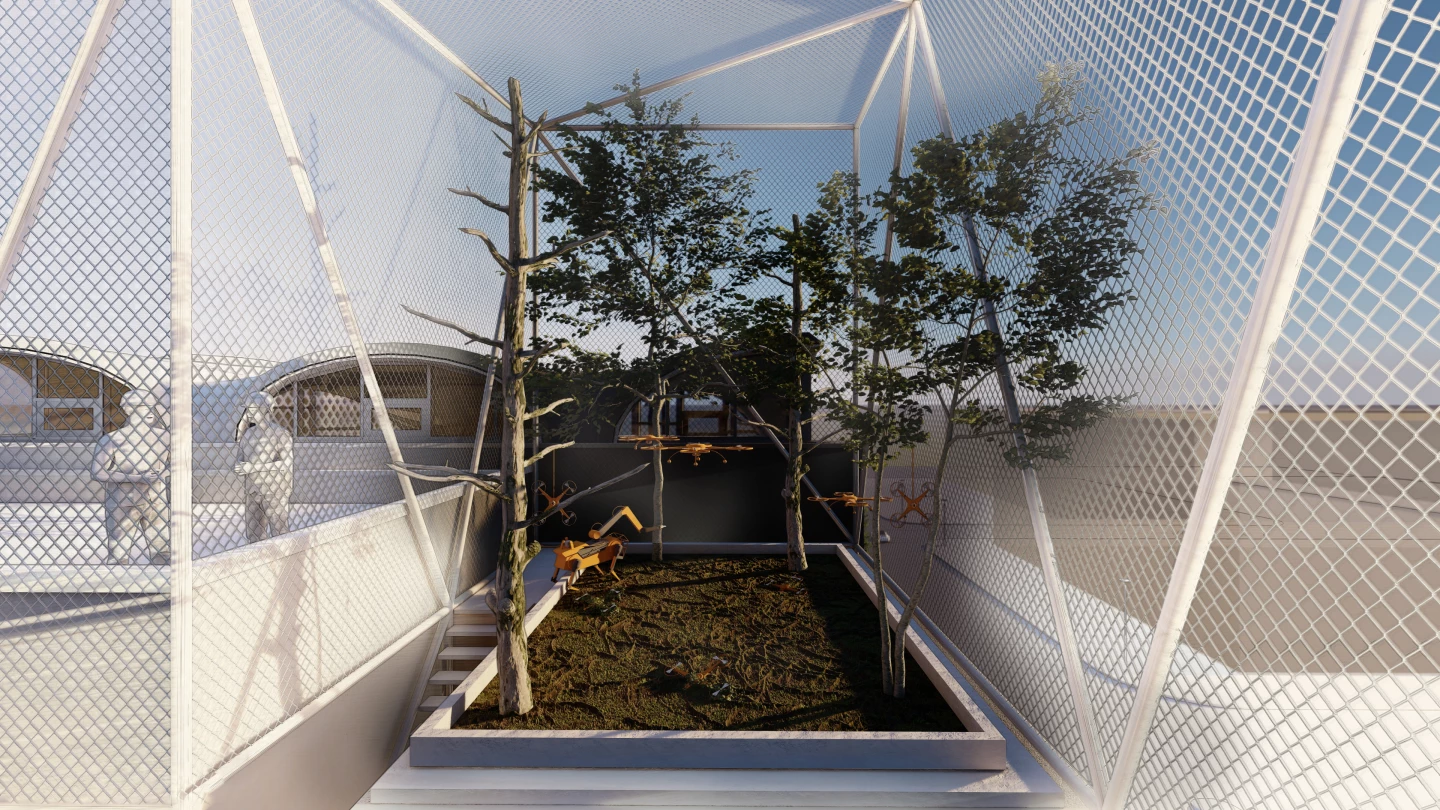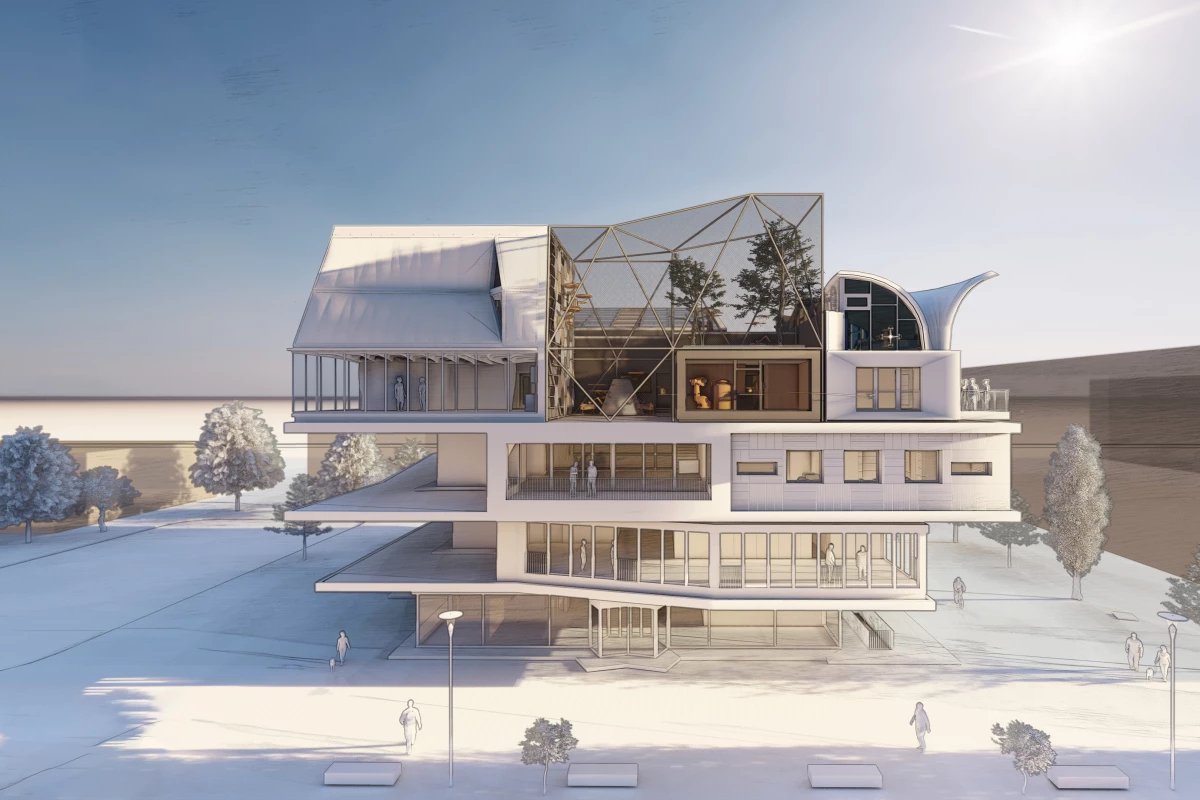Imagine an army of drones flying around our cities, relentlessly focused on detecting building issues before they become serious and carrying out repairs autonomously. It sounds like science fiction but researchers aim to explore whether this could indeed be realized with a new experimental project named DroneHub.
DroneHub is envisioned for the existing NEST research and innovation building on the Empa campus in Dübendorf, Switzerland. The project is led by Mirko Kovac, head of Empa's Sustainability Robotics Lab and director of the Aerial Robotics Lab at Imperial College London, and will focus on several areas of investigation.
It will involve installing a sort of drone aviary on top of the existing structure. This will consist of a cage of tube construction and metal mesh, reaching a height of 11 m (36 ft) and measuring 90 sq m (968 sq ft), which will host an experimental facade fitted with interchangeable surfaces and materials. Aerial Additive Manufacturing drones, which work much like a 3D printer and extrude a cement-like mixture out of a nozzle, will be put through their paces and used to diagnose issues in the facade and fix them.
Additionally, DroneHub will feature research on how drones can help monitor climate change in forest-like settings. It will include a small nature area with trees and greenery to support new robotic sensing technologies and even the development of biodegradable drones which degrade harmlessly once their usefulness comes to an end.

Finally, the researchers aim to use DroneHub for the less glamorous, but still important, job of creating new guidelines and safety standards for using drones alongside humans.
"If we imagine a future, in which drones are naturally integrated into everyday urban life and robots and humans coexist, then we need rules and technological standards for this," explained Kovac. "This starts, for example, with the landing sites on or near buildings that drones are to approach autonomously – or with charging stations, at which transport drones independently refuel energy for the next flight. In the DroneHub, the researchers will develop and establish technical guidelines for such interfaces between buildings and flying robots – and help to ensure that a coexistence of man and machine does not remain science fiction."
DroneHub is currently at the planning stage and there's no word yet on when we can expect it to be in use. In the meantime, Kovac's team is exhibiting some of its drone technology at this year's Architecture Biennale in Venice until November 26.
Source: Empa






